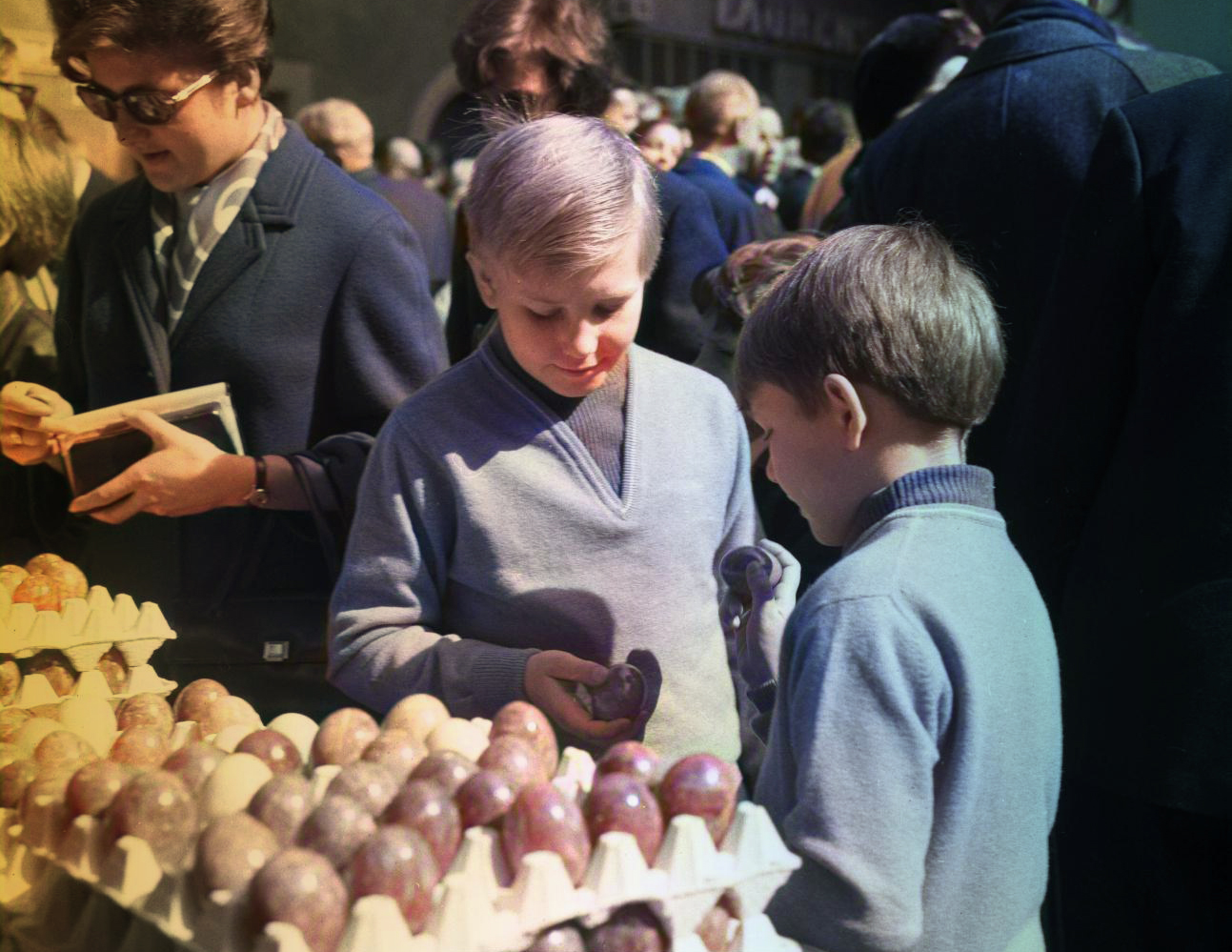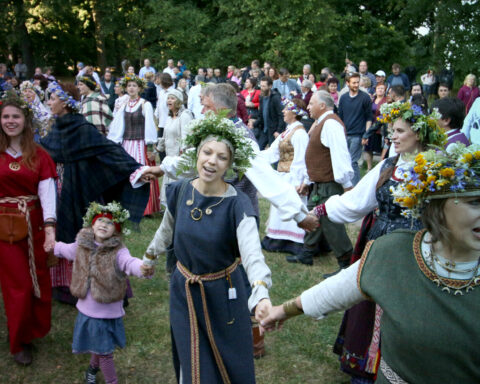Biologists say eggs are the largest single cells we find in nature. Like famous Romanian cultural theorist Mircea Eliade, anthropologists posit that they are cosmogonic symbols and, as such, related to Easter – the Spring feast of new beginnings. Both ideas – and many more – are true about eggs, and egg-related traditions are abundant around the Christian world. Many of them have origins in Central Europe.
There are dozens of plays and games with eggs featuring a central role. You can dye them or decorate them with numerous techniques. You can play catch or race with an egg on a spoon. You can hide them around the house or garden and invite (not only) children to seek them. Or, you can make war by egg tapping – crashing two eggs against each other to see whose egg cracks first.
That latter tradition, called egg tapping, egg picking, or egg fighting, is nowadays especially popular in the Anglo-Saxon world. But then again – as we already mentioned, eggs are a quite obvious addition to any Spring feast or Easter, so let’s look around to see who’s playing.
New country, new rules
The egg tapping tradition is widely popular now, both in England and some parts of the United States. It was popularized in colonial New Amsterdam (aka New York City) in the 1600s, as it was (and is) played in the original Amsterdam back in Europe. But the game, in its various forms, is also prevalent in Central Europe. In fact, it is where the oldest records of the game can be found.
Egg tapping history
The first written record of egg tapping appeared in a 14th century Zagreb chronicle, and it already pointed to a connection between eggs and Easter. Folklorists have also found evidence of egg tapping in 15th century Poland, where – contrary to the case of Croatia – the custom hasn’t survived to this day. It can nonetheless be found in Bulgaria.
Egg tapping rules
And where there’s a fight, there’s a winner. The stake in egg tapping is usually some form of promise of longer life, better health, or happiness. As Easter marks a kind of a new beginning (not technically a new year, but the rise of new life), winning an egg tapping game may mark the promise of a good year on the horizon. It is rather fluid, though, and the actual stake of the game changes over territories, villages, even families. The map may be as hard to sketch as that of the source of egg tapping ritual.
But if tracing the origin of the custom is a kind of agonistic game for you, one side note can be a party- – and egg-breaker. Egg tapping can also be found in Assam, India, during the Rongali Bihu celebration in mid-April. Therefore, the tradition may have roots deeper than we imagine.







